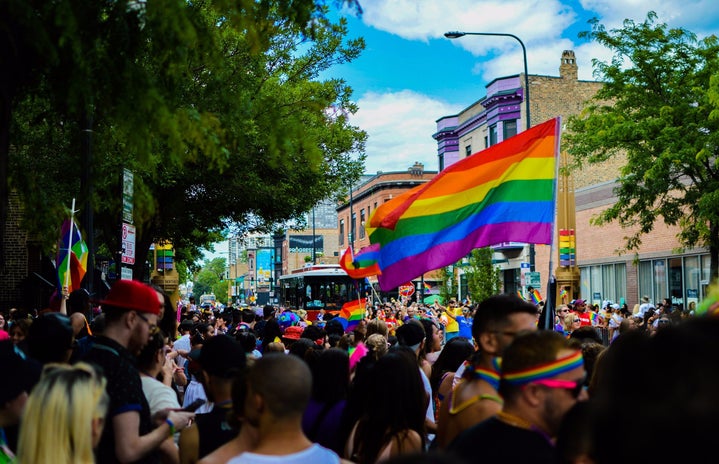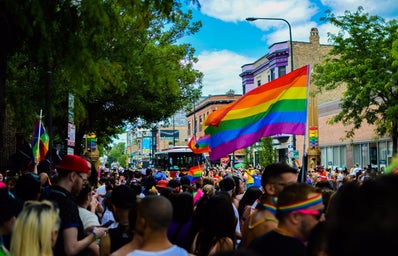National Coming Out Day is celebrated on October 11 each year since it was established in 1988. The LGBTQ+ community is becoming increasingly accepted and celebrated by society now more than ever. The history surrounding the LGBTQ+ community can be full of shame and hatred, which often leads to stigma. I’d like to share a few myths associated with “coming out” and ways to support loved ones if they decide to come out to you.
The coming out experience is very individualistic. You don’t ever have to announce to the world your truth if you don’t want to. Many decide that coming out as their authentic self isn’t something that needs to be announced. I mean, straight cisgender people don’t do it, right? If you do decide to come out in an environment where you think you may receive backlash, it is best to have a plan set up in case loved ones don’t react the way you had intended. Nevertheless, you have a community of people that will love and support you no matter what. Now, onto the myths:
Myth #1: Coming out is a one time thing.
Initially, you may decide to come out by telling a few friends or a trusted family member. It’s a great start to test out how it will be processed by you and other people alike, but this is far from the last time you will have to do so. When living in a society that assumes heteronormativity until told otherwise, you have to do just that: tell otherwise. It gets easier and easier to come out because it becomes a routine when meeting others. Whether it’s telling them about your gender, sexuality, or both, practice makes perfect.
Myth #2: You HAVE to come out to other people.
While it may come up in conversation and be considered “coming out”, you don’t owe anyone an explanation for how you identify or who you love. You don’t need to have this huge buildup and anxiety over coming out because it should be considered normal. As I mentioned before, you don’t have to announce yourself to anyone. People who are straight and cisgender don’t have to come out as such, so you don’t need to feel pressured to come out as anything else.
Myth #3: Your family will disown you.
Growing up in a conservative household, I too was scared about coming out as gay. I knew what my family believed and having a gay relative wasn’t supposed to be in the cards, but here I am. I am not out to the majority of my family for my own safety and mental health. While it is true that some family members may cut off contact with you, not everyone in your family will. What is most important is that you can choose who your family is. Families come in all shapes and sizes and creating your own is a really special experience. You deserve people in your life that are rooting for you every step of the way.
Myth #4: You will only ever come out as one identity.
Some members of the LGBTQ+ community knew practically from the day they were born that they were gay, bisexual, transgender, intersex, asexual, etc., but it’s a conflicting subject for others. It can seem like these new feelings come out of nowhere. One day you were straight, and the next you were *insert identity*. It can be scary, but it’s also a beautiful process.
Furthermore, it’s a learning experience. One identity may feel right for a period of time and then you grow and figure out that it no longer fits. You don’t have to label yourself if you don’t want to and you may come out as multiple identities before finding one that truly reflects yourself.
Your identity is valid no matter what it is and the coming out experience is a wonderful thing. Coming out first starts with yourself. Once you become confident in who you are, the rest will fall into place in time.
If you are looking for support, you can research your local LGBTQ+ center for resources. You can also go to https://www.thetrevorproject.org/ for support. The Trevor Project offers the Trevor Lifeline, which is for suicide support. If you are in a crisis, contact Trevor Lifeline or the Crisis Text Line at 741-741. The National Suicide Prevention Lifeline is also just a call away at 1-800-273-8255. You don’t have to go through this alone. There are people in the world that love and support you. Keep being your authentic self.



